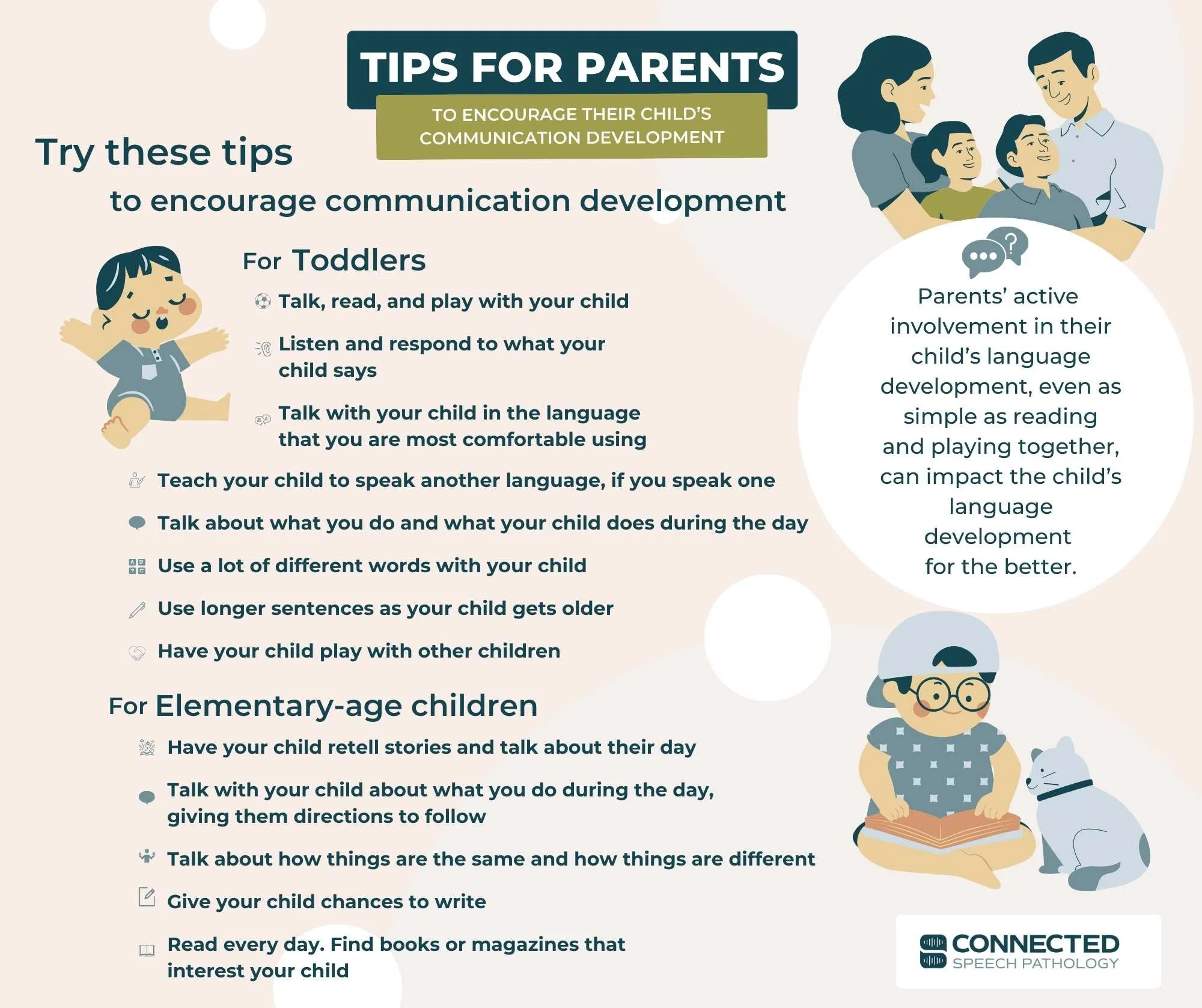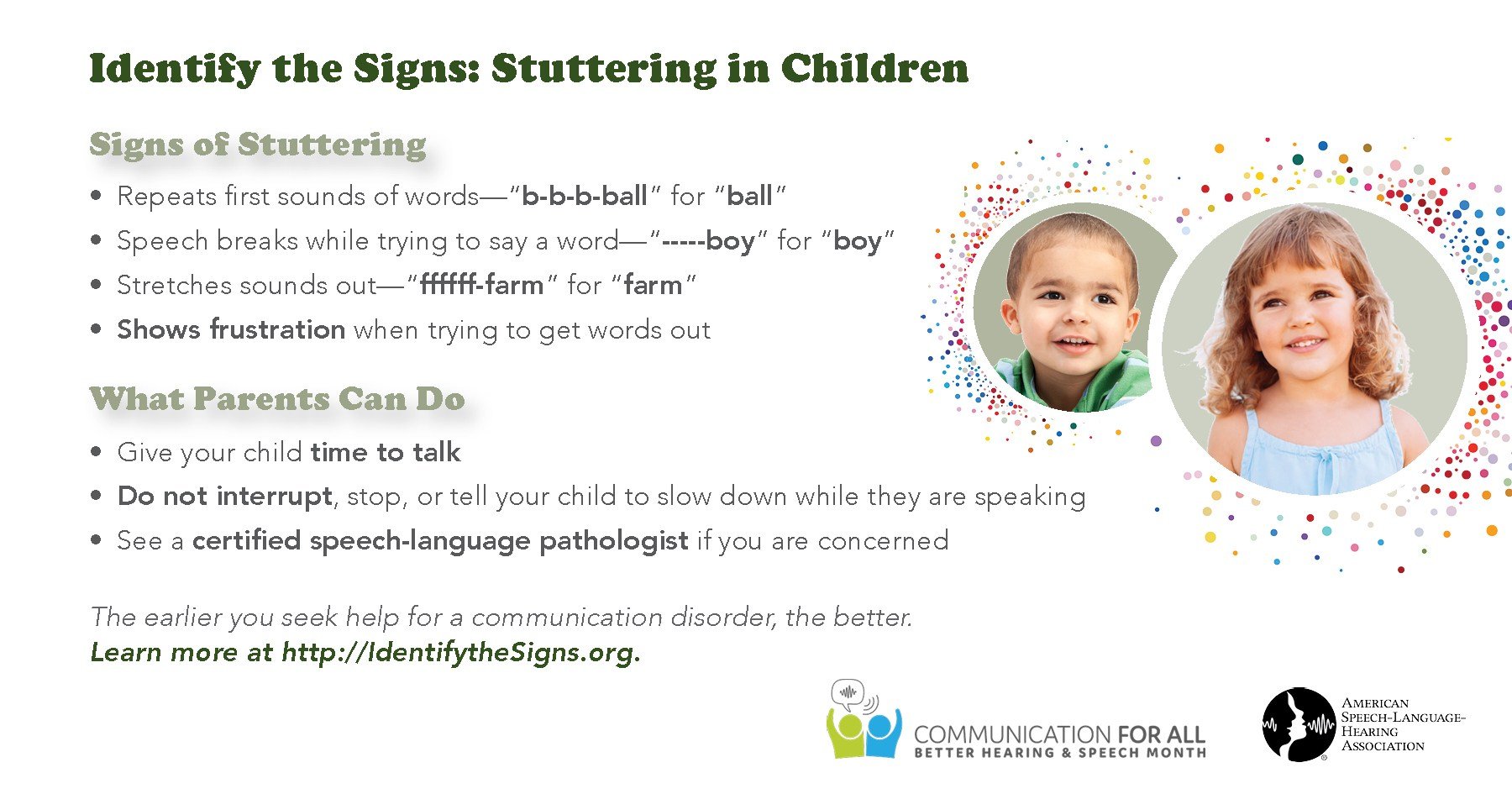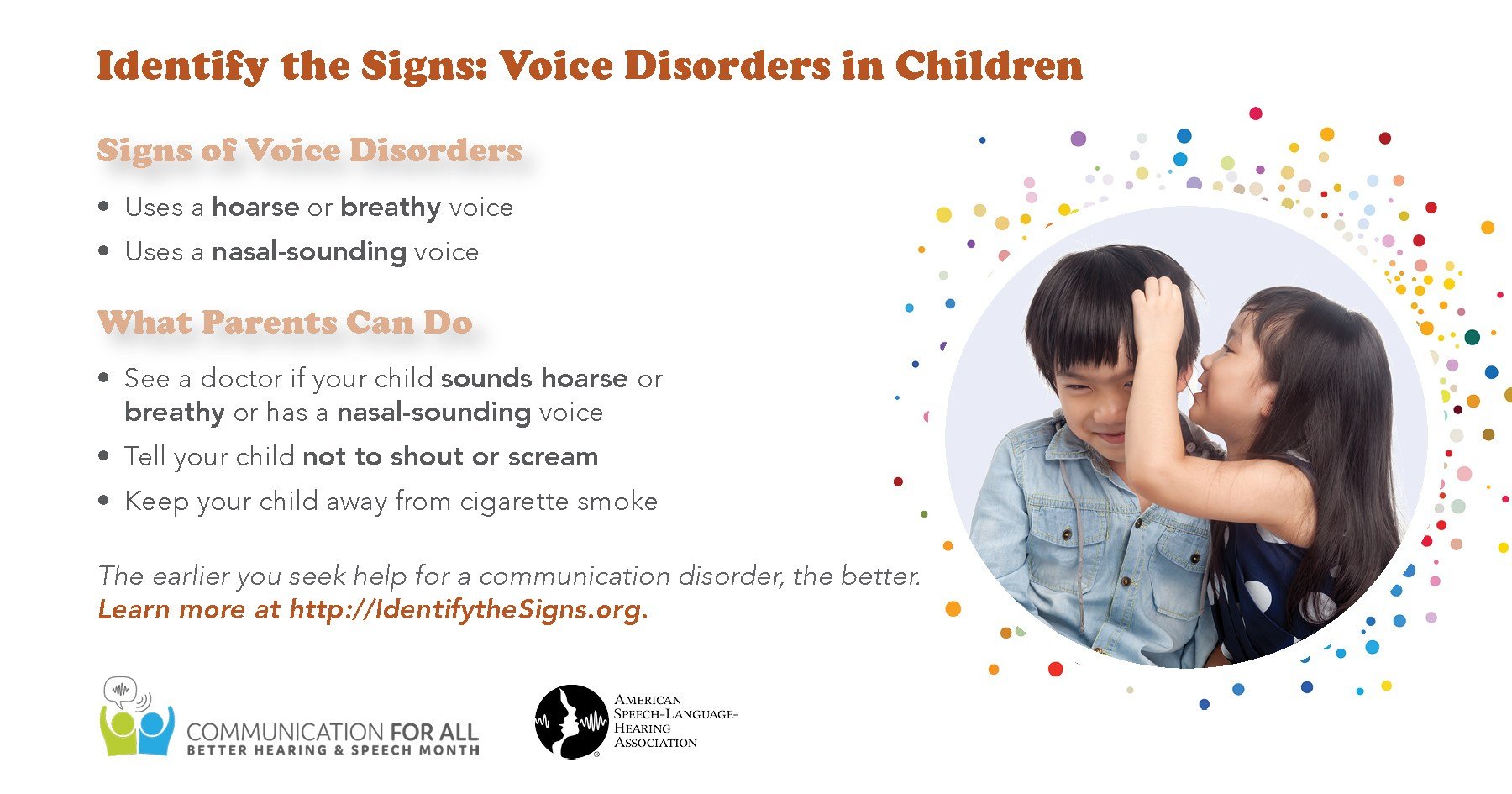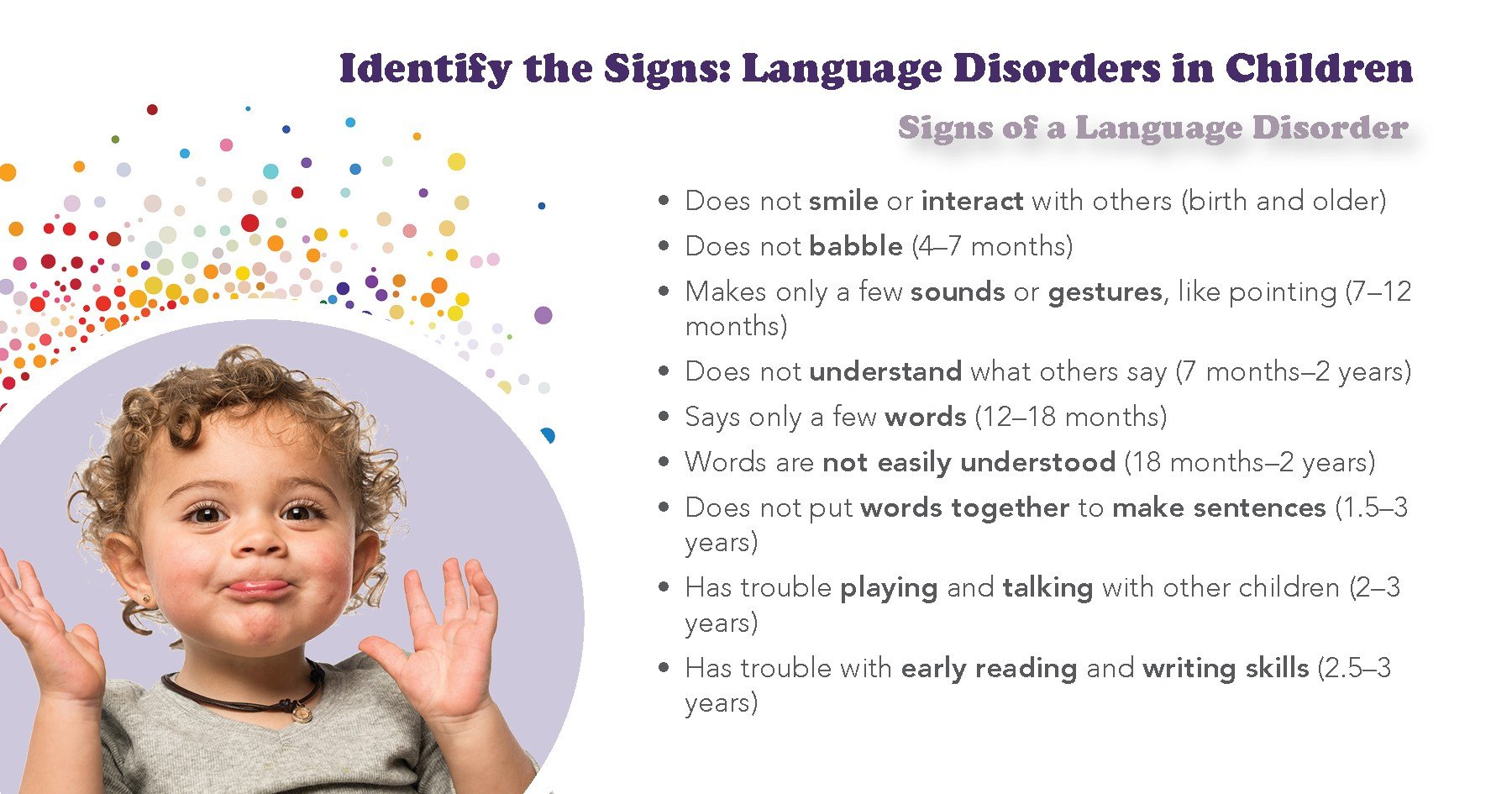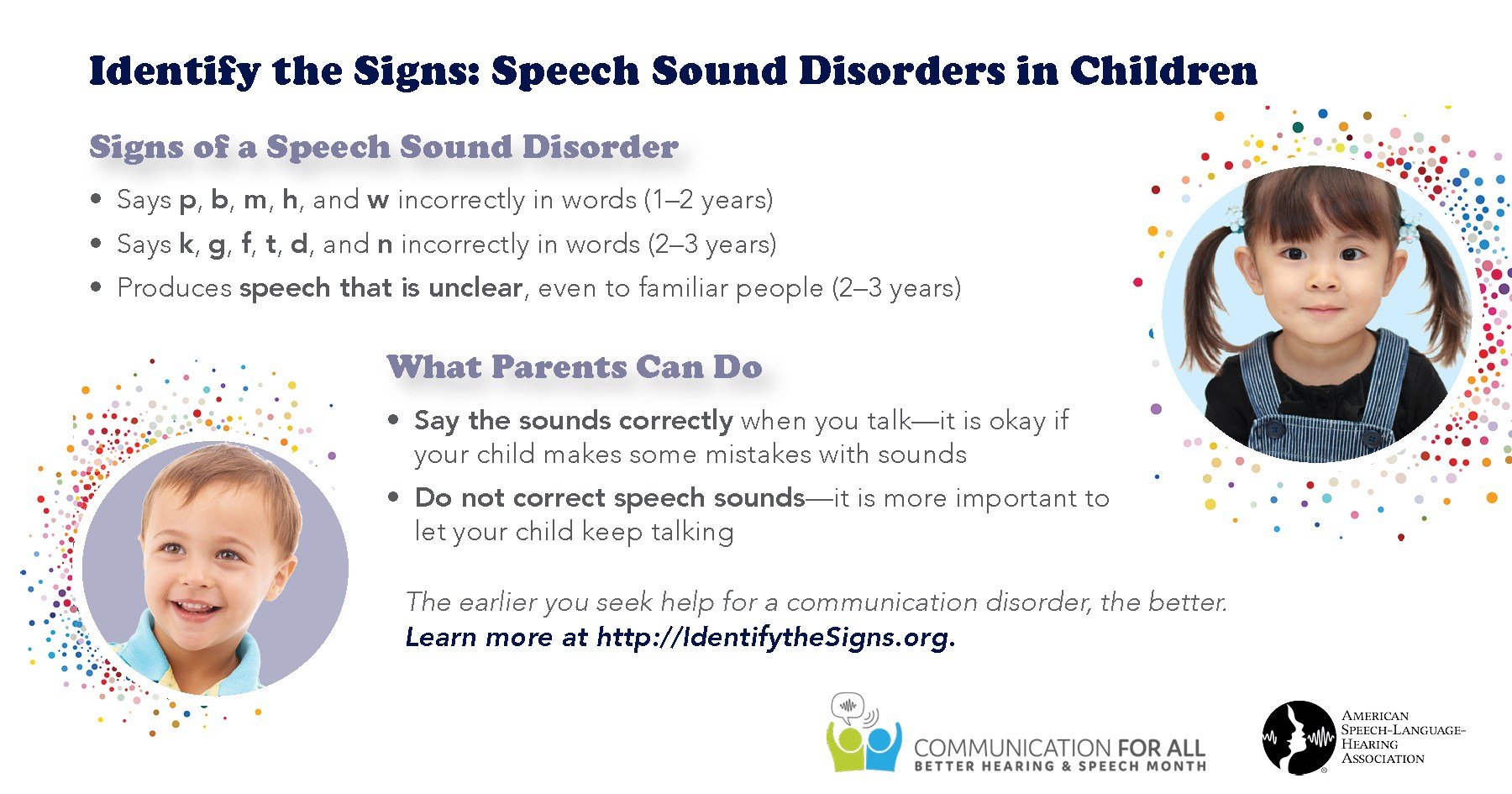Don't Wait! Identify the Early Warning Signs of Communication Challenges in Children
The Facts
Nearly 1 in 12 children ages 3–17 has had a disorder related to voice, speech, language or swallowing in the past 12 months, and more than half of them receive intervention. The data indicate that children with communication disorders have speech problems, language problems, voice difficulties, or swallowing difficulties and about one-third have a combination of at least two or more.
The Challenges of Communication Disorders
Every day, I see in my work that untreated communication disorders often lead to larger academic, social, and developmental issues. Early detection of speech, language, and hearing issues is absolutely critical to improving academic and social outcomes—and improving one’s quality of life.
Early Diagnosis is Key
For people with communication disorders, those closest to them are often their biggest asset. Unfortunately, many parents and caregivers are unable to identify the warning signs or dismiss them too readily. A recent poll of speech-language pathologists and audiologists by the American Speech-Language-Hearing Association (ASHA) reported significant parental delays in getting help for children with communication difficulties. This is just one example of the missed opportunities that commonly occur with communication disorders.
Identify the Signs: Speech and Language Disorders in Children
Development of strong communication skills is extremely important—and parents anxiously await their child’s first words. Yet common misconceptions remain. One is that children generally ‘grow out’ of speech or language difficulties. Unfortunately, this mistaken impression too often delays treatment.
Of course, some children are indeed ‘late bloomers,’ yet treatment is frequently necessary, too. Good communication skills are critical, helping with behavior, learning, reading, social skills, and friendships. It is much easier, more effective, and less costly to treat speech and language disorders early.
Speech and language disorders are evaluated and treated by speech-language pathologists. Speech is the ability to produce speech sounds using the mouth, lips, and tongue. A child may say sounds the wrong way, repeat sounds and words, or be otherwise difficult to understand. Language is the ability to use and put words together—and to understand others’ words. A child may have trouble understanding questions, following directions, or naming objects. Early speech and language treatment sets a child up for future school and social success.
Warning Signs for Parents to Watch for in Young Children
Does not babble (4–7 months)
Makes only a few sounds or gestures, like pointing (7–12 months)
Does not understand what others say (7 months–2 years)
Says only a few words (12–18 months)
Says p, b, m, h, and w incorrectly in words (1–2 years)
Words are not easily understood (18 months–2 years)
Does not put words together to make sentences (1.5–3 years)
Says k, g, f, t, d, and n incorrectly in words (2–3 years)
Produces speech that is unclear, even to familiar people (2–3 years)
Repeating the first sounds of words, like “b-b-b-ball” for “ball” (any age)
Stretching sounds out, like “fffffarm” for “farm” (any age)
For school-age children, warning signs may include the following:
Has trouble following directions
Has problems reading and writing
Does not always understand what others say
Is not understood by others
Has trouble talking about thoughts or feelings
Tips for Parents to Encourage a Child’s Communication Development
For toddlers:
Listen and respond to what your child says
Talk with your child in the language that you are most comfortable using
Teach your child to speak another language, if you speak one
Talk about what you do and what your child does during the day
Use a lot of different words with your child
Use longer sentences as your child gets older
Have your child play with other children
For elementary-age children:
Have your child retell stories and talk about their day
Talk with your child about what you do during the day, giving them directions to follow
Talk about how things are the same and how things are different
Give your child chances to write
Read every day. Find books or magazines that interest your child
Getting Help
Although treatment ideally begins early, it is never too late to get help. The large majority of individuals report significant improvement after treatment. I encourage you to share the information in this article and investigate other resources you find on ASHA’s “Identify the Signs” site. Above all, though, I hope you will seek help if you suspect that you or a loved one shows signs of having a disorder. If you would like to schedule an assessment, contact us!
About the Author
Allison Geller is a communication coach, speech-language pathologist, and founder of Connected Speech Pathology, an international online practice providing professional communication coaching and speech therapy for children, teens, and adults. With more than two decades of experience, she has worked in medical and educational settings, published research on aphasia, and leads a team of specialists helping clients improve skills in public speaking, vocal presence, accent clarity, articulation, language, fluency, and interpersonal communication.

